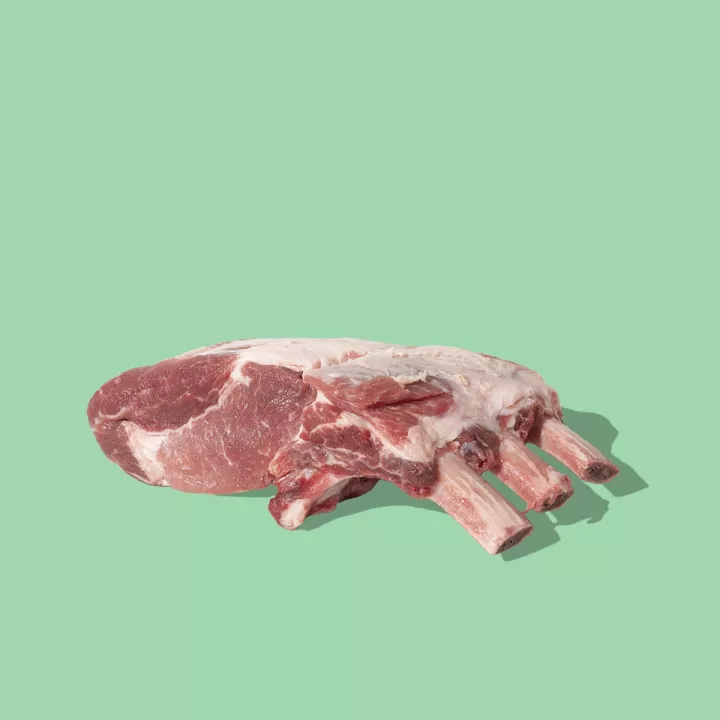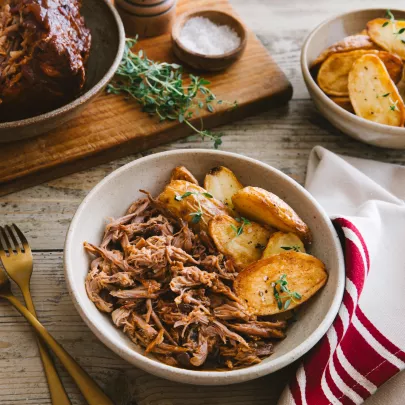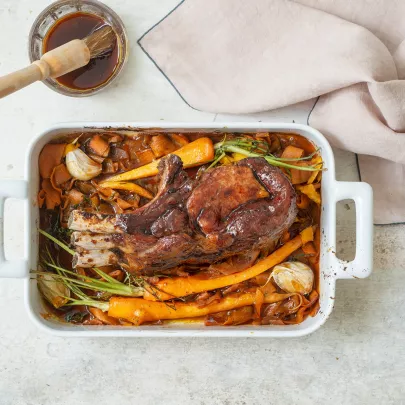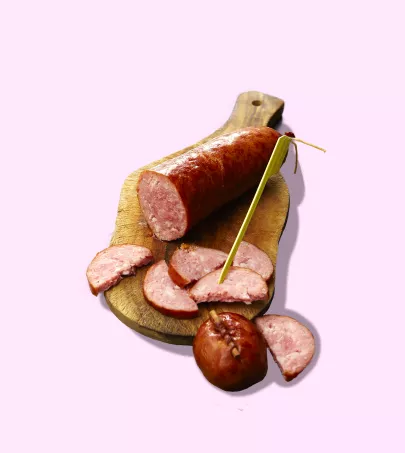
Raised on free-range pasture in the Central Pyrenees, the PDO Noir de Bigorre pig is a noble, ancient breed that a group of dedicated individuals has managed to save from extinction. The pigs are fed a natural diet and receive regular exercise, which accounts for their marbled meat and unique taste.
What you need to know
With its shiny, black coat and horizontal ears, the Noir de Bigorre pig is one of a kind, and—more importantly—endemic to the Central Pyrenees. The species has hovered on the verge of extinction since the 1980s because it was thought to be too fatty and not productive enough for intensive farming techniques. It is now experiencing a renaissance thanks to the work of a group of farmers, artisanal butchers, and curing professionals who have made it a priority to continue farming the pigs in their native environment and maintain the ancestral industry and savoir-faire surrounding the animal. Evidence of the Noir de Bigorre pig dates back to the Gallo-Roman era.
Raised on free-range pasture in its native region, these pigs are fed a healthy diet made up of the natural resources that are available in the area, such as pasture grass, GMO-free grain, and local and seasonal fruit (acorns, apples, medlars, etc.). This diet, in combination with regular exercise, produces exceptional meat that contains high levels of antioxidants and is redder and more marbled than traditional pork.
PDO certification for Noir de Bigorre pork guarantees that the animals were born, raised, and slaughtered (at a minimum of 12 months of age) within an area that includes the Hautes-Pyrénées, a few towns in the Pyrénées-Atlantiques, and portion of Gers and Haute-Garonne.
Nutritional benefits
The meat of the PDO Noir de Bigorre pig contains high levels of antioxidants and "healthy fats", such as oleic acid (like olive oil) and linoleic acid, which play a key role in protecting against high cholesterol and cardiovascular disease.
Editor's note
Pair with
White wine: Côtes-de-Gascogne, Jurançon Sec, and Pacherenc-du-Vic-Bihl.
Red wine: Côtes-de-Bergerac and Côtes-de-Duras.











